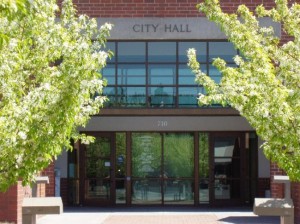Guest post by Jeff Eager, Attorney with Balyeat & Eager, LLP
In a special meeting held July 10, 2013, a divided Bend City Council voted 5-2 to place a 15.6% increase of the city’s hotel tax on the November 2013 election ballot. People staying in Bend hotels, motels, and other temporary lodging currently pay a 9% tax to the city. If voters approve the tax increase, the city rate will go up to 10% in June 2014 and to 10.4% in June 2015.
The city estimates the tax increase, once fully implemented, would generate an additional $585,000 annually. State law requires that 70% of the additional sum be allocated to tourism promotion; the remaining 30% would go to the City’s general fund. Based upon the City’s projections, the tax increase will result in $410,000 in tourism promotion funds and $175,000 in general fund revenues.
The measure approved by Council states that it is anticipated the additional tourism promotion revenues would be used to promote winter and shoulder season tourism in Bend; additional city revenues would be used for police and fire services. Councilors also discussed the use of a portion of the tourism promotion revenues to enhance art and culture amenities. The city contracts with non-profit Visit Bend for tourism promotion. (For more on this story visit www.compasscommercial.com/blog)
Councilors supporting the tax increase commended tourism industry representatives for presenting a compromise measure which satisfied a broad swath of the industry. Supportive councilors also looked forward to more funding for police and fire protection, increased tourism-related business activity, and an increase in funding for arts and culture amenities. Mayor Jim Clinton expressed support for “moving our arts and culture to another level,” for the benefit of both visitors and residents.
The two dissenting votes were cast by Councilors Scott Ramsay and Victor Chudowsky. Ramsay observed that, with the possible hotel tax increase in tandem with a recently passed property tax increase benefitting the Bend Parks & Recreation District, it is becoming “much more expensive to visit Bend and to live in Bend.”
Chudowsky listed a series of other potential local government tax increases which may vie for voters’ attention – and dollars – in the coming year: a public transit tax, a fire department tax, a tax to fund dredging downtown Bend’s Mirror Pond, and possibly a gas tax. Those measures are being discussed by various Central Oregon local governments.
Chudowsky expressed concern about the process governing local government tax increases: “Everybody rushes out to the ballot, with no way to prioritize.” With approval of the hotel tax increase measure, “This Council will probably get a certain reputation for saying yes to all of these [tax increases] without prioritizing.”
Chudowsky and other councilors also want to review governance of Visit Bend to ensure that the tourism industry is broadly represented. Chudowsky said that Visit Bend is neither a tourism agency nor a government agency, and the uncertainty of Visit Bend’s status places the tax increase measure on “shaky legal and constitutional ground.”
The Council vote concludes a series of sometimes-contentious public meetings. In February of this year, the Council first considered an increase to the hotel tax. With some in the lodging industry opposing an increase, the Council stated its desire to form a committee of tourism industry representatives to craft a joint proposal for Council.
Some tourism industry representatives were dismayed when the Council later invited a group supporting the tax increase to present a proposal at a subsequent Council work session. The group, calling itself the Bend Tourism, Arts and Public Safety citizens group, proposed to increase the tax rate to 11%.
The disgruntled industry representatives, including Wayne Purcell of the Riverhouse Hotel and Dave Rathbun of Mt. Bachelor Ski Resort, argued that the Council had failed to abide by its commitment to form a committee of all interested representatives. In response, Council urged industry representatives to come up with a solution that was acceptable to the entire industry.
A group of industry representatives then met and hammered out a compromise which is embodied in the measure approved by Council on July 10.
In recent years, Council tourism discussions have often pitted Visit Bend staff and board members against other tourism industry representatives, led by Purcell. In the July 10 meeting, Councilors expressed optimism that the collaborative approach to the compromise hotel tax measure, coupled with possible Visit Bend governance reforms, would result in greater industry cooperation. Councilor Doug Knight said, “The acrimony has been cured.”
Only time will tell whether that optimistic assessment is correct.
Jeff Eager, formerly Bend’s Mayor, is a business and government affairs attorney with the law firm of Balyeat & Eager, LLP, with offices in downtown Bend. His provides his clients with business and real property law advice, and local government issue analysis, tracking, and advocacy in Central Oregon and beyond. He can be reached at (541)322-0404, or jeff@balyeatlaw.com.
